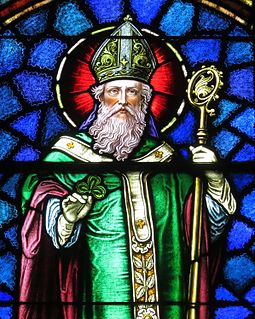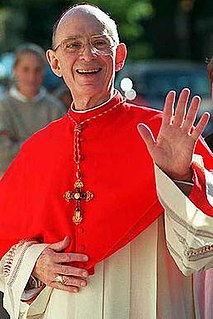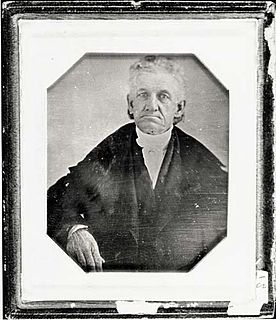A Quote by Blaise Pascal
We implore the mercy of God, not that He may leave us at peace in our vices, but that He may deliver us from them.
Related Quotes
What I would like to leave behind is a simple prayer that each of you may find what I have found—God’s special gift to us all: the gift of peace. When we are at peace, we find the freedom to be most fully who we are, even in the worst of times. We let go of what is nonessential and embrace what is essential. We empty ourselves so that God may more fully work within us. And we become instruments in the hands of the Lord.
There are two gods. The god our teachers teach us about, and the God who teaches us. The god about whom people usually talk, and the God who talks to us. The god we learn to fear, and the God who speaks to us of mercy. The god who is somewhere up on high, and the God who is here in our daily lives. The god who demands punishment, and the God who forgives us our trespasses. The god who threatens us with the torments of Hell, and the God who shows us the true path.
There are two gods. A god who casts us off because of our sins, and a God who calls to us with His love.
Just as God's love to us believers, his children, is unalterably the same, whatever may be the manifestations of that love; and as his peace with us is the same, however much our peace may be disturbed; so it is also with regard to our being in fellowship or partnership with him: it remains unalterably the same so far as God is concerned.
Our God is a God of love. He waits with open arms, and the unfolding of His merciful plan of salvation is not only therefore the mark of divine power but also the mark of God's relentless, redeeming love. It is a point well worth pondering because, among other reasons, it will help us to understand better why God, through the prophets, denounces sin and corruption in such scalding terms. He loves all of us, His spirit sons and daughters, but hates our vices. His denunciation of those vices may, if we are not careful, seem to obscure the enormous and perfect love He has for us.
A God who chastises our lack of faith, our vices, the little esteem in which we hold dignity and the civic virtues. We tolerate vice, we make ourselves its accomplices, at times we applaud it, and it is just, very just that we suffer the consequences, that our children suffer them. It is the God of liberty ... who obliges us to love it, by making the yoke heavy for us - a God of mercy, of equity, who while He chastises us betters us and only grants prosperity to him who has merited it through his efforts. The school of suffering tempers, the arena of combat strengthens the soul.
The whole story of creation, incarnation, and our incorporation into the fellowship of Christ's body tells us that God desires us, as if we were God, as if we were that unconditional response to God's giving that God's self makes in the life of the Trinity. We are created so that we may be caught up in this, so that we may grow into the wholehearted love of God by learning that God loves us as God loves God.
God grant that each of us here today may so live that all among us, and with us, may see, not us, but that which is divine and comes from God. With that vision of what those who have lost their way may become, my prayer is that they may receive strength and resolution to climb higher and higher and upward and onward to that great goal of eternal life and also that I may do my part in seeking to show by example, as well as by precept, that which will be the best of which I am capable of doing.










































